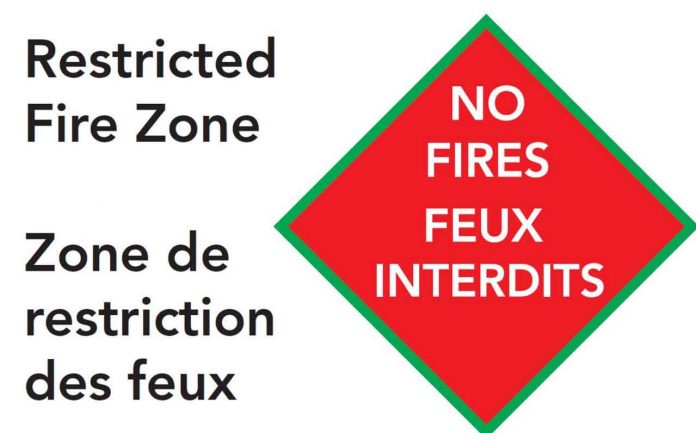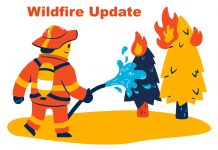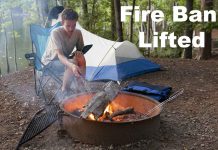Ontario’s Ministry of Natural Resources and Forestry has instituted outdoor fire restrictions in certain areas deemed as Restricted Fire Zones (RFZs)1.
These zones are specific areas where outdoor fires are prohibited. These restrictions are in accordance with the Forest Fires Prevention Act and Outdoor Fires Regulation 207/96, which state that outdoor fires, including grass, debris, and campfires, are not permitted in RFZs unless certain conditions are met or a permit has been granted1.
Residents should also be aware that municipal fire bans can be imposed by local municipalities and can coexist with RFZs. This means that lifting of either the municipal fire ban or the RFZ does not automatically allow outdoor fires. Residents should always confirm with their local municipality or local municipal fire department about any fire bans or restrictions in place1.
The Office of the Fire Marshal can also impose fire bans in unincorporated territories inside the Fire Region of Ontario, but these bans will not be put in place if a ministry RFZ is already in effect1.
There are some exceptions to these rules. If strict criteria are met, campfires and charcoal barbecues may be allowed in organized campgrounds or provincial parks within the RFZ1.
A Restricted Fire Zone is usually declared for two main reasons: either outdoor conditions are extremely dry, or the number of fires occurring has stretched firefighting resources to their limits. These restrictions are temporary measures and will be lifted as soon as outdoor conditions permit1.
Residents and visitors to these areas should look for and obey green and red RFZ signs, which are placed along roadways, at popular camping spots, in sports lodges, and in gas stations and stores in the affected area. Large advertisements may also be displayed in local newspapers and announcements made on radio and television stations in the area1.
Inside a RFZ, certain activities are not permitted, such as having campfires, burning grass or woody debris, and using burn barrels, except in organized campgrounds and provincial parks1.
However, some fire sources are still permitted. For instance, portable liquid fuel or gas stoves that can be easily turned off can be used. Charcoal installations and outdoor wood burning stoves or furnaces can also be used, but only if certain conditions are met, such as being within 100 meters of a permanent dwelling structure on land that is legally occupied and ensuring that all flames are fully extinguished before leaving the area1.
Safety should always be a top priority when in a RFZ. It is recommended that you be cautious with anything that could start a fire, watch your propane or gas equipment carefully, smoke only when stationary, and ensure all matches or cigarettes are out before disposing of them1.
Violating these restrictions can result in severe consequences. If a fire is set in a RFZ without meeting specific conditions, individuals can face a fine up to $25,000, three months in jail, and may be held financially responsible for any costs incurred in fighting a forest fire1.
Finally, if you spot a fire in a RFZ, excluding campgrounds or provincial parks, report it to your local ministry district office1. Stay safe and help protect Ontario’s natural resources by following these fire restrictions.





